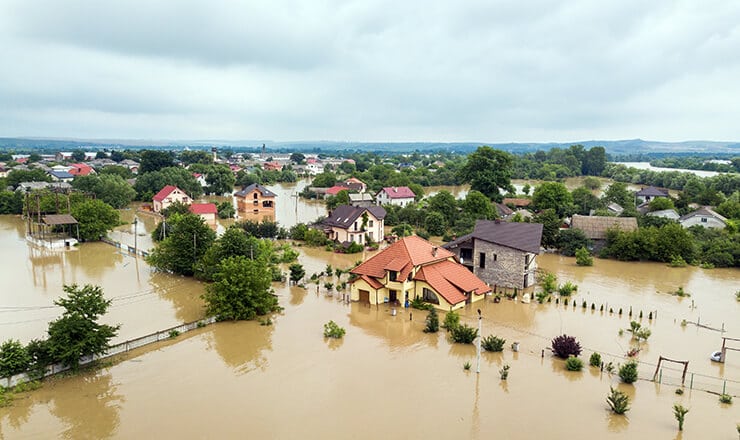Selling a house is difficult enough without damage from a storm, hurricane, flood, or fire. Most homebuyers are dissuaded by the house’s poor state and insist on repairs, or you likely have to sell to a flipping investor.
Follow these steps to sell your house after a natural disaster.
-
Sell “As Is” or Restore
Ask yourself if you really want to make repairs to the property. Doing so improves your chances of making a sale. However, the restoration process will be expensive. If you sell the house “As-Is,” you are guaranteed to earn less money. Buyers will insist on a lower purchase price for a property they have to pay to fix up themselves.
-
File an Insurance Claim
File a homeowners insurance claim with your insurance company. Find out what is covered under your policy and how much damage it covers. Photograph and inventory damages, and keep a record of estimated repair costs. Once you file your claim, you will have a better idea of what your insurance will pay out and decide if it is worth restoring the property.
-
Decide How Much to Fix
The bottom line, you need to make the house safe. If damages force you to live someplace else temporarily, renovations are necessary. Avoid drastic changes because buyers may not share your taste in remodeling. Your repairs must make the home livable and might go so far as to increase its value.
-
Make Repairs
Depending on how extensive the damages are, repairs can take several months. This delays you in listing the home on the market. During that time, you may lose prospective buyers or miss out on a trending time to sell.
-
Determine Area Value
Consider this: if you live in a high-risk area for flooding or fires, does your property value dip? Buyers lose enthusiasm for a property if it is in a hot spot for natural disasters. Even if you restore the house state, be prepared to negotiate with buyers over lowering the price.
-
Prevent Damage from Future Disasters
If the property is in an area prone to disaster, prevent future losses and damage, if possible. For example, if you make repairs after a big freeze, but are still in the height of winter, take precautions. These include the addition of extra insulation, cleaning gutters, and guarding water pipes. It would be unfortunate to invest in repairs after one disaster, to then pay new repairs after a second calamity.
Skips These Steps
If you would like to sell your house “as is,” consider selling it to an investor. Most investors will make a cash offer regardless of a property’s condition, location, or state of livability. You can forgo repairs, save money, and enjoy a quick closing on a property that would take months to fix and sell.






